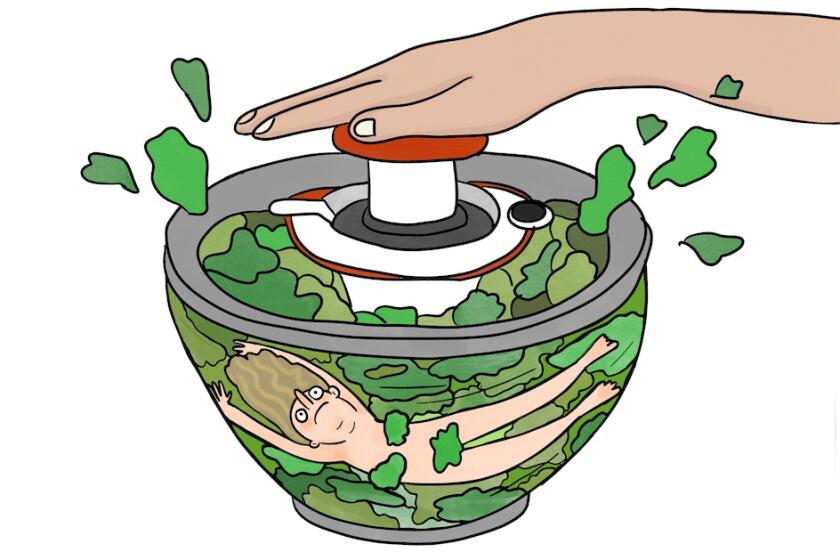A Dog’s Life: Rx for Izzy
Among the mystical questions to ponderIs there life after death? Are there black holes in space?the toughest of them just might be, How the hell do you find a good veterinarian in this town?
First of all, talk to everyone you know who has a dog. Usually therell be good-vet stories and bad-vet stories. If a good vet is mentioned more than once, go there. If the bad-vet story comes up more than once, run away, men!
Do your research: Take the stories youve heard from your friends and search veterinary Websites. When you go to the vet, be informed. Ask questions. A good vet will welcome that.
Recently, I saw Izzy licking his tail, and I saw a small area that was red, wet and bumpy. You already know Im obsessed with my standard poodle. Every breath he takes, every lick he makes, Ill be watching him. So I pay attention. If its routine cleaning, I move on. Some (all) would say Im a hypochondriac, but its important to find a doc who knows what he or she is doing.
So I tried one vet and got the old its a hot spot diagnosis. Put some powder on it, and it will go away. Basically, thats the vet version of Take two aspirin and call me in the morning. Nothing improved, so I went to vet two. I was told to wrap it, use some ointment and, oh, Izzy might need to have his tail cut off.
Panicked, I asked two strangers on the street with dogsand coincidentally, both mentioned the Animal Dermatology Center (13125 Ventura Blvd., Studio City, 818-981-8877). Who even knew there was such a thing?
Botox for dogs? No. But after I arrived, Dr. Alexander Werner shaved Izzys tail and gave him antibiotics and special shampoo. Not only will his tail not have to be lopped off, its as beautiful as ever. (In fairness, other vets did offer that the condition might resolve itself.)
Now, schlepping Izzy in for medical care is no walk in the park. Hoisting his 80 pounds onto the table is something no one looks forward to (them, me or Izzy). So before I head to the vet, I pull from my arsenal of home remedies: If he gets a tummy ache or has a loose stool, I make rice and boiled chicken, with a little Pepto-Bismol if needed; if his ears are dirty or have yeast, I use a product called T8 Keto Flush; if he hurts himself or seems to have a pain, I give him Ascriptin (adult aspirin coated with Maalox to protect his stomach).
When our beloved Norton (also a standard poodle) developed arthritis, rather than put him on steroids, which can harm a dogs liver, I gave him Missing Links Canine Plus with Joint Support and Joint Fuel by Twinlab. And they worked. Id do the same for Izzy. I always have Benadryl in case he gets stung by a bee. I also watch Izzys skin like a hawk: Every night at bedtime, I give him what he thinks is a great massage, but Im actually looking for lumps or any other skin mysteries.
Dont take everything you hear from your vet as the last word. If theres time, always get a second opinion before you have any sort of procedure. (Obviously, not a good plan for emergencies.)
A few places to keep in mind for your veterinary needs: Ive been hearing a lot of great things about Animal Surgical & Emergency Center (1535 S. Sepulveda Blvd., Los Angeles, 310-473-1561), which doesnt really surprise me, because they saved Norton four years ago. He has since passed away, and we thankfully havent needed an emergency center with Izzy. I have also had good experiences at VCA McClave Animal Hospital (6950 Reseda Blvd., Reseda, 818-881-5102). Both of these cliinics have doctors on call 24 hours a day: If Izzy needs a doctor overnight, or if something feels like an emergency, thats what I would want. Many animal hospitals dont have 24-hour access, so you do need to ask.
For peace of mindand potential peace of pocketbookinvestigate pet insurance. I have VPI (Veterinary Pet Insurance), and it has paid off for me over the years.
When it comes to helping Izzy stay healthy, I think about the old Henny Youngman joke: Guy goes to a doctor, raises his arm and says, It hurts when I do that. Doctor says, Well, dont do that. Its not quite that simple with veterinarians. You have to be your dogs voice, to say, Doctor, it hurts his paw when he does that.
And the answer should not be, Well, dont do that.
More to Read
Sign up for our L.A. Times Plants newsletter
At the start of each month, get a roundup of upcoming plant-related activities and events in Southern California, along with links to tips and articles you may have missed.
You may occasionally receive promotional content from the Los Angeles Times.






